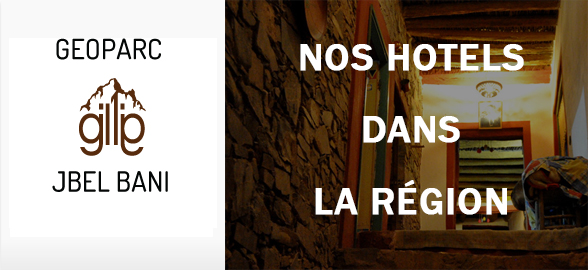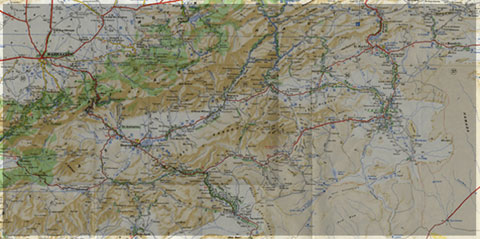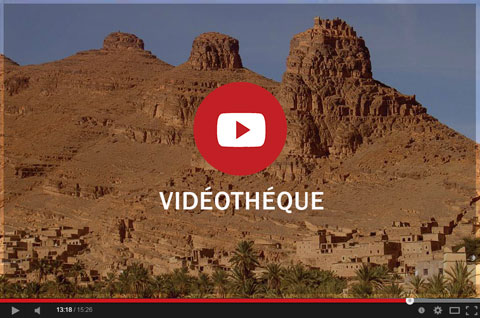Recherchez sur le site !
Recherche avancée / SpécifiqueCatégories publications
+ Sciences De La Terre - Archéologie - Astronomie - Spéléologie - Ecologie - Pédologie - Volcanologie - L'hydrogéologie - Géomorphologie - Minéralogie - Pétrologie - Paléontologie - Géologie + Climatologie - Réchouffement climatique - Changement climatique + Plantes - Plantes Aromatiques - Plantes médicinales + Zoologie - Faunes + Botanique - Flors + Sciences humaines - Géo Eco Tourisme - L’anthropologie - L'Histoire - Démographie - Sociologie - Géographie - Patrimoine culturel
Géo éco tourisme inclusif

Géoparc et Recherche Scientifique
Le coins de l’étudiant



Blog Géoparc Jbel Bani
The potential of citizens science for sociospatial studies.
Defining and operationalising research pathways
Sandrine Simon [0000-0002-3769-9834], Universidade Lusófona, Interdisciplinary Research Centre for Education and Development, Lisbon, Portugal. sandrine.simon.dina@gmail.com
Tiago Duarte [0000-0002-6167-1399], Universidade Lusófona, Interdisciplinary Research
Centre for Education and Development, Lisbon, Portugal. tiagoaduarte@gmail.com
Sónia Vladimira Correia [0000-0003-2722-5253], Universidade Lusófona, CIDEFES- Centro de Investigação em Desporto, Educação Física, Exercício e Saúde, Lisbon, Portugal. sonia.vladimira@ulusofona.pt
Pedro Afonso Fernandes [0000-0001-5762-5157], Universidade Católica Portuguesa,
Católica Lisbon School of Business & Economics, Católica Lisbon Research Unit in
Business & Economics (CUBE), Lisbon, Portugal. paf@ucp.pt
Carlos Smaniotto Costa [0000-0002-1896-4663], Universidade Lusófona, Interdisciplinary Research Centre for Education and Development, Lisbon, Portugal. smaniotto.costa@ulusofona.pt
Zuinder Manico [0000-0002-5247-3825], Universidade Lusófona, Interdisciplinary
Research Centre for Education and Development, Lisbon, Portugal. zuinder@hotmail.com
Abstract –
The term Citizen Science has been used in various contexts, but little effort has been made to provide a vision of it in regard to socio-spatial studies, which are in the core of the research group on Citizen Science in understanding and transforming the territory (CIDATE). The authors in this chapter represent widely diverse disciplines, including environmental engineering, economy, urban planning and design, landscape architecture and education. It intends to deliver a tailored and timely vision of how, with the help of Citizens Science, the democratisation of science can be promoted and, with this, a more collective and sustainable decision-making. This chapter is a result of a reflective dialogue between researchers, their projects and experiences tackling spatial and human development from different perspectives. It gathers the conclusions emerged in the organised debates and from the research projects carried out by the researchers, towards creating a broad understanding on the key issues that could help operationalise Citizen Science in future research efforts.
Keywords –
Citizen science, socio-spatial research, literature review,
INTRODUCTION
The term Citizen Science (CS) has been used in various contexts, but little effort has been made to provide a clear definition of it in regard to socio-spatial studies. As different perspectives may lead to different results, tailoring the concept and providing guidance is essential to obtain the best possible from future actions. In order to do so, the Working Group on Citizen Science of CIDATE-CeiED, set a number of tasks, including:
- the search for relevant pieces of literature and their systematic review,
- taking notes for a qualitative and integrative/interpretive forms of review of the various research projects already carried out at the CIDATE, and ©The Author(s), 2022
Smaniotto Costa, C. & Aragão, N. (Eds.): Understanding and transforming the territory, pp.
25-37, 2022
https://doi.org/10.24140/2020-sct-vol.XXXXX
- positioning ourselves on important issues related to CS along with developing key recommendations on how CS could best be operationalised in the context of socio-spatial studies.
Citizen Science (CS) emerged as a field of research and practice in the 1990s, and refers to the active engagement of the general public in scientific research tasks. It emerged from a variety of participatory approaches (action research, systems thinking and practice workshops, surveys and questionnaires, participatory GIS, etc.) that had already been developed, illustrating a strong need to not only democratise decision-making processes and involving people in projects but also to improve the quality of data gathered when making policies that lead to societal changes (Vohland et al., 2021). Originally conceived to facilitate good-quality largescale data gathering, CS has the potential to transform the way in which we envisage scientific research and its impacts, who provides data as part of scientific research could also have a say concerning the scientific approach and the benefits research should bring. The collective creation of knowledge, through discussions between experts and practitioners, is questioning roles and giving a voice to those who, despite generally being viewed as the ‘passive public’, often knows best. Traditionally used in natural sciences, CS is now extending its range of activities to social sciences and gaining popularity (Crain, Cooper & Dickinson, 2014). Research in all disciplines could benefit from it and contribute to its advancements – the question is how.
PDF Article Complet
Source web par : Sandrine Simon
Les tags en relation
Dictionnaire scientifique
Plus de 123.000 mots scientifiques
Les publications
Géo parc Jbel Bani

Circuits & excursions touristiques

cartothéques


Photothéques
Publications & éditions




